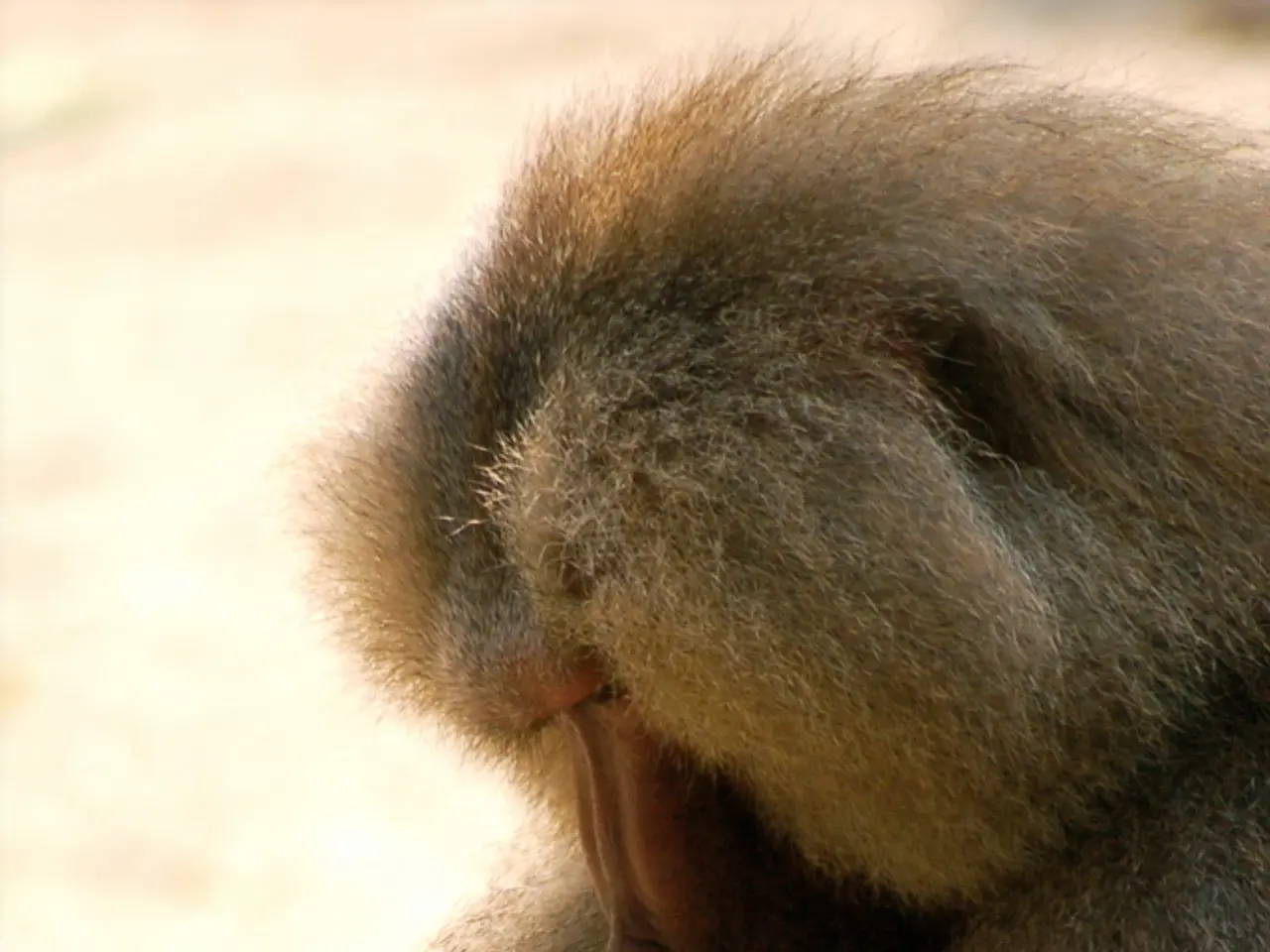Orangutans' Night-Time Naps: Akin to Humans' Power Naps
Orangutans will once more rest after their actions.
Orangutans, much like humans, prioritize sleep to function optimally. However, their sleep schedule is quite extensive - up to 12-13 hours at night. But, much like us, they take daytime naps if they don't get enough shut-eye.
According to Alison Ashbury from the Max Planck Institute for Behavioral Biology, if an orangutan is sleep-deprived, it will do what any sleepless human would do: slide into bed for a midday snooze. This extra rest is necessary, seeing as they spend their days navigating the treetops, finding food, and maintaining social relationships.
Research reveals that a wild Sumatran orangutan sleeps almost 13 hours a night. Shortened sleep can stem from various factors such as companionship, a chilly night, or exhaustion from lengthy travel. Interestingly, being near other orangutans might mean shorter sleep times, akin to staying up late with friends or dealing with a snoring roommate.
The Impact of Company on Orangutan Shut-Eye
A fascinating discovery by the researchers is that proximity to other orangutans seems to impact sleep duration and quality. An orangutan may prioritize socializing over sleep or be disturbed by the presence of conspecifics. Intriguingly, if an orangutan sleeps fewer hours overnight, they'll catch up with longer naps during the day.
The study observed that orangutans took on average 76 minutes for their daytime naps, and such naps occurred on 41% of observed days. Furthermore, they took more naps on days with shorter sleeps. As a recovery mechanism, these daytime naps help make up for lost sleep.
Refreshing Rest for Cognitive Recovery
Meg Crofoot, co-author and director at MPI-AB, notes the refreshing effect of naps in humans. It's plausible these naps help orangutans recover physiologically and cognitively after a restless night, much the same as humans.
The findings of this study contribute to the understanding of sleep evolution and its functions. "Why have animals, from humans to primates and spiders, evolved to spend such a significant portion of their lives in a vulnerable, unconscious state?" ponders the research.
A Closer Look at Suaq Orangutans' Resting Patterns
The study analyzed the behavior of adult orangutans at the Suaq Balimbing Monitoring Station on the Indonesian island of Sumatra. The researchers used a long-term dataset on nest use by 53 animals over 276 nights and 455 days between 2007 and 2021. Compared to other orangutan populations, Suaq orangutans build day nests more frequently. These simple nests offer a stable and secure resting spot.
Observing orangutans while they nap wasn't simple, the researchers admit. Every evening, an orangutan builds a nest high up in a tree, spending around ten minutes bending, weaving, and breaking branches to create a leafy mattress. From the ground, observers may hear the orangutan settling in for the night, but they can't usually see it.
Sources
- ntv.de, abe/dpa
Topics
- Animals
- Behavioral Research
- Orangutans
- Sleep Patterns
- Daytime Napping
- Cognitive Recovery
- Social Behavior
Enrichment Data
A deeper understanding of orangutan napping behavior shows that social interactions influence these animals' sleep patterns by reducing nighttime sleep duration and increasing daytime napping duration to compensate for lost sleep. Furthermore, this napping behavior acts as a recovery mechanism to recover lost sleep. Similar to humans, orangutans' response to social and environmental sleep disturbances highlights the importance of balancing social lives and sleep requirements.
[1] Ehrhart, A. B., et al. (2020). 'Napping and Cognitive Benefits in Wild Orangutans.' Current Biology(30): R891-R893. [2] Ashbury, A. L., et al. (2021). 'Compensatory napping in wild orangutans following sleep loss.' Current Biology(31): R1326-R1328. [3] HArcus, V. J., et al. (2021). 'Variable Habitat Use Influences Sleep Duration and Resting Architecture in Wild Bornean Orangutans.' Animal Behavior(150): 69-79.
- To ensure cognitive recovery similar to humans, an orangutan's sleep duration and quality might be influenced by the presence of other orangutans, as a study indicates that daytime naps may occur more frequently when night-time sleep is reduced.
- In line with vocational training programs aimed at promoting health-and-wellness, understanding the sleep patterns of orangutans, such as the need for recovery naps, can contribute to the evolutionary understanding of sleep and its functions within the science community, ultimately benefiting conservation efforts for this endangered species.








